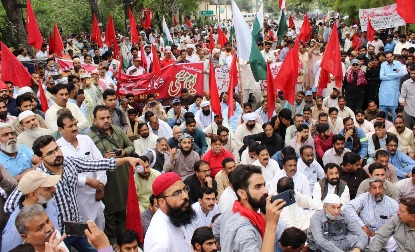
The Pakistan Kissan Rabita Committee and Labour Education Foundation recently concluded a pivotal three-day workshop in Murree. This event brought together trade unionists, climate activists, and agricultural representatives to address the critical intersection of climate change and labour rights.
Key topics covered:
Climate crisis fundamentals
Khalid Mahmood conducted the next session, providing a comprehensive overview of the climate crisis. He covered essential topics such as Earth’s climate, global warming, climate change, the impact of greenhouse gases, and how human activities have significantly exacerbated climate change
Historical context of environmental challenges
Ayesha Ahmad presented a historical overview, tracing the roots of the climate crisis through industrialization, colonialism, capitalism, and neoliberal globalization.
Power, Justice and Just transition
Zaghum Abbas explored the concepts of power, justice, and just transition. He discussed the notion of justice in today’s world, climate injustice, and the critical need for a just transition, particularly in the energy sector, focusing on Pakistan’s context and referencing Guardrail’s Principles as a framework for ensuring that the transition to a sustainable economy is equitable.
Gender aspects of climate change
Ayesha Ahmad then addressed the gendered impact of the climate crisis, emphasizing how women and marginalized groups are disproportionately affected and stressing the importance of integrating a gender-sensitive approach into discussions on just transition.
· Way Forward for Just Transition
The workshop concluded with a roundtable discussion on the way forward for the just transition movement in Pakistan. Participants focused on current social movements in the country, drawing inspiration from global climate justice movements. Ideas were shared on how to enhance advocacy, target key groups such as workers, women, trade unionists, and youth, and review and implement government policies and laws related to climate justice and labor rights.
This collaborative effort marks a significant step towards a sustainable and equitable future for Pakistan’s workforce and environment.


